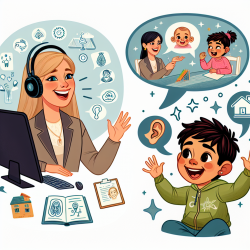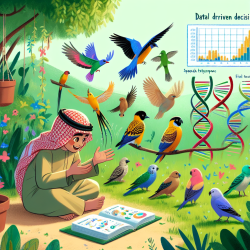Understanding the Interplay of Personality and Cognitive Ability
In the field of speech-language pathology, especially in online therapy services like those offered by TinyEYE, understanding the intricate relationship between personality and cognitive ability is crucial. The research article "Ability Tests Measure Personality, Personality Tests Measure Ability: Disentangling Construct and Method in Evaluating the Relationship between Personality and Ability" provides valuable insights into this complex interaction.
Key Findings from the Research
The study highlights that personality and cognitive ability are not entirely separate constructs. Instead, they influence each other significantly during assessments. For instance, personality traits can affect performance on cognitive tests, while cognitive abilities can impact responses on personality assessments. This cross-contamination challenges the traditional view of these constructs as independent.
Implications for Online Therapy
For practitioners in online therapy, these findings suggest a need to consider both personality and cognitive ability when assessing and planning interventions for children. Here are some practical steps to integrate these insights:
- Holistic Assessment: Use assessments that consider both cognitive and personality factors to gain a comprehensive understanding of a child's abilities and challenges.
- Customized Interventions: Design therapy plans that cater to the unique combination of personality traits and cognitive abilities of each child, enhancing the effectiveness of interventions.
- Continuous Monitoring: Regularly evaluate both cognitive and personality developments to adjust therapy approaches as needed.
Encouraging Further Research
While the study provides a foundational understanding, there is a need for further research to explore how these insights can be practically applied in online therapy settings. Practitioners are encouraged to engage in research initiatives that investigate the impact of integrated assessment and intervention strategies on therapy outcomes.
Conclusion
Understanding the intertwined nature of personality and cognitive ability is essential for enhancing therapy outcomes. By adopting a data-driven approach that considers both constructs, practitioners can develop more effective, personalized therapy plans that cater to the unique needs of each child.
To read the original research paper, please follow this link: Ability Tests Measure Personality, Personality Tests Measure Ability: Disentangling Construct and Method in Evaluating the Relationship between Personality and Ability.










